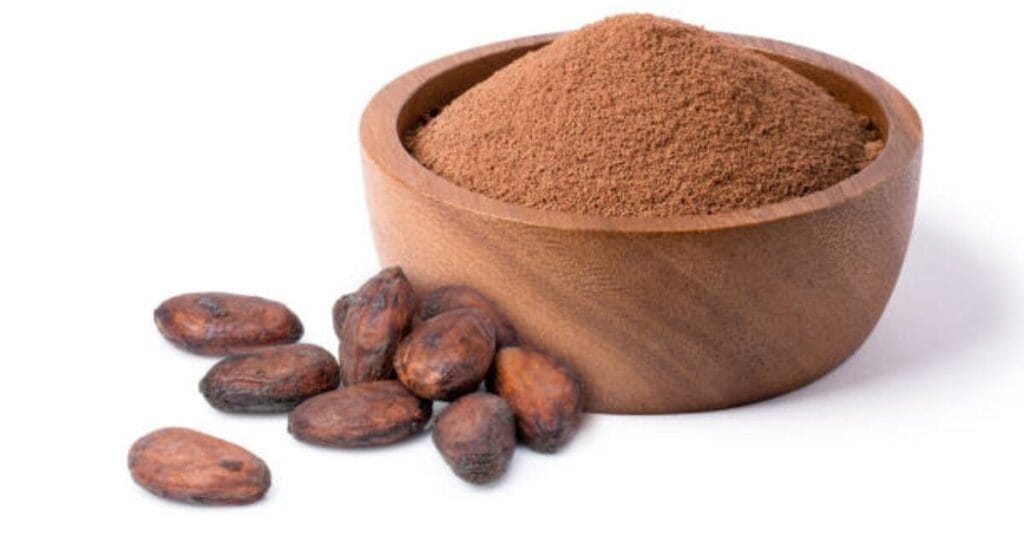To turn ground coffee into instant coffee, brew a concentrated solution, dehydrate it through methods like spray-drying, grind the dried coffee into granules, and package it for convenience. This process ensures quick solubility in hot water, providing an instant alternative to traditional brewed coffee. However, the flavor may differ due to the manufacturing process. In this process, we’ll unveil the secrets to crafting a rich and satisfying coffee experience in just moments of How to make Instant Coffee from Ground Coffee.
Instant coffee is a pre-brewed, processed, and preserved cup of coffee packaged conveniently. In contrast, ground coffee undergoes minimal processing, only washed and roasted before packaging and shipment to coffee shops and retail stores, initiating its natural deterioration process.
Freshly ground coffee is rich in antioxidants, surpassing green tea and cocoa in antioxidant activity. The roasting process enhances this, generating hundreds more antioxidants in coffee. Finely ground beans release more caffeine into the water, indicating that a finer grind produces more robust coffee. Conversely, a coarser grind consistently makes a weaker cup of coffee.
As an affiliate site, we are associated with the amazon. We might receive a commission when you use links or recommendations on our website to make qualified purchases. The cost you pay for the goods or services is unaffected by this.
Table of Contents
How to make Instant Coffee from Ground Coffee: Explore Ground Coffee & Instant Coffee

Ground coffee and instant coffee are two popular forms of coffee that cater to different preferences and lifestyles.
Ground Coffee:
Ground coffee is made from coffee beans that have been roasted and then ground into coarse or fine particles. This type of coffee offers a rich and authentic flavor profile, as the brewing process involves steeping the ground coffee in hot water. Coffee enthusiasts often appreciate the aroma and nuanced taste that ground coffee provides.
Brewing ground coffee typically involves various methods, such as drip brewing, pour-over, French press, or espresso machines. Each method allows for a unique brewing experience, allowing individuals to tailor the strength and flavor of their coffee to their liking. Ground coffee is known for its versatility and the ability to experiment with different brewing techniques to achieve the desired taste.
Instant Coffee:
Instant coffee, on the other hand, is a more convenient and time-efficient option. It is made by freeze-drying or spray-drying brewed coffee, producing soluble powder or granules. Instant coffee is praised for its quick preparation, making it an ideal choice for those with busy lifestyles or limited time for brewing.
Instant coffee has a typical shelf life of around 1-2 years and can expire over time. To ensure optimal longevity, store it in a cool, dry place.
The invention of instant coffee dates back to 1901, when Japanese-American chemist Satori Kato pioneered the process. Over the years, advancements such as freeze-drying and spray-drying have contributed to the convenience of preparing coffee.
For a caffeine boost in your protein shake, consider adding instant coffee. Blending not only enhances flavor integration but also improves the overall texture of the shake.
Opting for sugar-free instant coffee provides a healthful alternative, delivering the benefits of caffeine without adding sugars for a guilt-free sip. Instant coffee inherently contains caffeine, offering a temporary energy boost.
To prepare instant coffee, one simply needs to mix the granules with hot water, and the coffee quickly dissolves, producing a quick and easy cup of coffee. It is often chosen for its convenience, long shelf life, and easy transportability.
While instant coffee may offer a more expedient coffee-drinking experience, some argue it lacks the depth and complexity of flavor found in freshly ground coffee. The choice between ground coffee and instant coffee ultimately depends on individual preferences, time constraints, and the desired coffee experience. Whether savoring the ritual of brewing or seeking a quick caffeine fix, both options cater to the diverse tastes of coffee enthusiasts worldwide.
Quality instant coffee should avoid bitterness. If you encounter difficulty in selecting a flavorful brand, consider opting for instant coffee crafted from 100% freeze-dried premium Arabica beans. Additionally, using water below boiling temperature can prevent the development of a bitter taste in your coffee.
Instant coffee commonly utilizes low-grade Robusta beans, while ground coffee favors Arabica beans. However, many supermarket-grade ground coffees incorporate Robusta or a blend. Robusta is chosen for instant coffee due to specific considerations.
Ground coffee involves roasting coffee beans and grinding them for brewing, similar to how flour is milled from wheat for baking. Various brewing methods exist, but they all necessitate combining ground coffee beans with water.
Ground coffee can lose flavor over time, especially if not stored properly. Exposure to air, light, and moisture can contribute to flavor degradation. Storing ground coffee in an airtight container in a cool, dark place is advisable to maintain freshness. Additionally, purchasing smaller quantities and grinding the coffee before brewing can help preserve the flavor profile for a more enjoyable cup.
Ground coffee is generally more affordable than whole beans. The processing costs for grinding are lower, and the production can be done at a larger scale, contributing to cost savings. Ground coffee has a shorter shelf life, which can impact pricing. While factors like the brand, type of beans, and quality influence the cost, ground coffee is often more budget-friendly than whole beans.
How is Instant Coffee Made?
Instant coffee is made through a process that involves transforming brewed coffee into a dry, soluble form. The two primary methods used for producing instant coffee are freeze-drying and spray-drying. Here’s an overview of each process:
1. Freeze-Drying:
a. Brewing: The process begins with brewing a concentrated coffee solution, usually through traditional methods like brewing with hot water.
b. Freezing: The brewed coffee is then frozen to create coffee ice. This is typically done by rapidly freezing the concentrated liquid.
c. Drying: The frozen coffee is subjected to a vacuum, causing the ice to undergo sublimation – the transition from a solid directly to a gas. This leaves behind freeze-dried coffee crystals.
d. Grinding: The resulting freeze-dried coffee is ground into fine granules or powder, creating the familiar instant coffee that dissolves easily in hot water.
2. Spray-Drying:
a. Brewing: Like freeze-drying, the process starts with brewing a concentrated coffee solution.
b. Atomization: The brewed coffee is sprayed into a hot, dry chamber as a fine mist. This process is known as atomization.
c. Drying: As the coffee droplets travel through the hot air, the liquid evaporates, leaving behind tiny, dry coffee particles.
d. Collection: The dried coffee particles are collected, and any remaining moisture is removed.
e. Granulation: The collected powder may undergo a granulation process to achieve the desired particle size for instant coffee.
Both freeze-drying and spray-drying methods aim to remove the water content from the brewed coffee, resulting in a product that can be quickly rehydrated when mixed with hot water. These processes help preserve the flavor and aroma of the coffee while providing a convenient and long-lasting coffee product that requires minimal preparation. Instant coffee is famous for its convenience, quick preparation, and extended shelf life compared to freshly ground coffee.
How to make Instant Coffee Powder?

Making instant coffee powder involves transforming brewed coffee into a dry and soluble form. Here is a simplified guide on how to make instant coffee powder at home:
Ingredients:
- Ground Coffee Beans
- Hot Water
Instructions:
1. Brewing:
Start by brewing an intense and concentrated coffee. Use a coffee-to-water ratio that results in a robust flavor. You can use various brewing methods, such as a drip coffee maker, espresso machine, or any preferred method that yields a potent coffee concentrate.
2. Cooling:
Allow the brewed coffee to cool to room temperature. This step is crucial to prevent the degradation of flavors during the drying process.
3. Freeze-Drying Method:
Pour the cooled coffee concentrate into ice cube trays or a shallow pan. Place the tray in the freezer and let the coffee freeze completely.
Once frozen, remove the coffee ice and place it in a vacuum chamber.
Apply a vacuum to induce sublimation, where the ice turns directly into vapor, leaving behind freeze-dried coffee.
4. Spray-Drying Method:
If using the spray-drying method, pour the coffee concentrate into a spray dryer after brewing and cooling. The spray-dryer will atomize the liquid coffee into fine droplets that quickly dry into powder as they fall through a hot air chamber. Collect the dried coffee particles.
5. Grinding:
Whether freeze-drying or spray-drying, the resulting dried coffee may be in larger chunks or particles. Grind the dried coffee into a fine powder using a coffee grinder or food processor. The goal is to achieve the desired texture for instant coffee.
6. Storage:
Store the freshly made instant coffee powder in an airtight container to maintain its flavor and aroma.
Usage:
To prepare a cup of instant coffee, add a desired amount of the homemade instant coffee powder to hot water, stir, and enjoy your coffee. Adjust the quantity of powder based on your preference for strength and flavor.
Is Ground Coffee stronger than Instant?
The strength of coffee is influenced by various factors, including the type of coffee used, the brewing method, and the coffee-to-water ratio. In general, ground coffee is often perceived as more potent than instant coffee due to several reasons:
Concentration during Brewing:
- Whether using a drip coffee maker, espresso machine, or other brewing methods, ground coffee allows for a longer extraction time, resulting in a more concentrated and robust flavor.
Freshness of Ground Coffee:
- Ground coffee is often associated with a fresher taste because it is usually made from recently roasted beans. The flavor compounds in coffee deteriorate over time, and freshly ground coffee tends to retain more of its aromatic and flavorful characteristics.
Variety of Coffee Beans:
- Ground coffee allows for using various coffee beans, each with its unique flavor profile. This diversity contributes to a broader range of flavors and intensities in ground coffee compared to the more standardized taste of instant coffee.
Brewing Techniques:
- Different brewing techniques, such as pour-over, French press, or espresso, enable coffee enthusiasts to experiment with factors like grind size, water temperature, and extraction time, giving them greater control over the strength and taste of their coffee.
However, it’s essential to note that individual perceptions of strength can be subjective and vary. Some people may prefer the convenience of instant coffee, which dissolves quickly in hot water and offers a consistent flavor profile. The perceived strength also depends on the coffee-to-water ratio when preparing ground and instant coffee. Ultimately, personal preferences, convenience, and the desired coffee experience play significant roles in determining which type of coffee is considered “stronger” by an individual.
Is Ground Coffee healthier than Instant Coffee?

The healthiness of ground coffee versus instant coffee depends on various factors and individual preferences. Both types of coffee offer certain health benefits, and the choice between them may involve considerations such as nutritional content, antioxidant levels, and potential health effects. Here are some aspects to consider:
1. Antioxidant Content:
- Both ground coffee and instant coffee contain antioxidants, which help neutralize harmful free radicals in the body. Antioxidants in coffee, such as chlorogenic acids, contribute to its potential health benefits. While the levels of antioxidants can vary depending on the coffee bean variety and roasting process, some studies suggest that freshly brewed ground coffee may have slightly higher antioxidant levels than instant coffee.
2. Acrylamide Levels:
- Acrylamide is a naturally occurring chemical formed during the roasting process of coffee beans. It is present in both ground and instant coffee. Some studies have linked high acrylamide intake to potential health concerns. While the levels in coffee are generally considered safe and are influenced by factors like bean type and roasting time, instant coffee may contain slightly higher levels due to its manufacturing process.
3. Nutrient Retention:
- Freshly ground coffee is often associated with better retention of certain nutrients and flavors than instant coffee. The freeze-drying or spray-drying process used to make instant coffee can result in some loss of volatile compounds and aromas.
4. Convenience and Additives:
- Instant coffee is known for its convenience and quick preparation. Still, some commercial instant coffee products may contain additives like sugar, creamers, or preservatives. Checking the ingredient list can help individuals make healthier choices based on their dietary preferences.
5. Individual Sensitivities:
- Some individuals may find that certain compounds in coffee, such as caffeine or acids, can affect their digestive system or overall well-being differently. Personal sensitivities should be considered when choosing between ground and instant coffee.
In summary, ground and instant coffee can be part of a healthy diet when consumed in moderation. The healthiness of each type depends on factors like individual preferences, brewing methods, and the overall lifestyle of the coffee drinker. Choosing high-quality coffee beans, paying attention to additives, and being mindful of personal health considerations can contribute to a positive coffee-drinking experience.
How to turn Ground Coffee into Instant Coffee without a grinder?
Turning ground coffee into instant coffee without a grinder is possible, although the process requires some effort. Here’s a simple method using tools you likely have at home:
Ingredients and Tools:
- Ground Coffee
- Baking Sheet
- Parchment Paper
- Rolling Pin or Heavy Object
- Plastic Bag
Instructions:
Spread Ground Coffee:
- Spread a thin layer of your ground coffee on the parchment paper.
Pre-Freeze Coffee:
- This helps the coffee granules firm up and makes them easier to work with.
Break into Pieces:
- Once the coffee is partially frozen, take it out and transfer it to a plastic bag.
- Seal the bag and use a rolling pin or a heavy object to crush the coffee granules. Aim for a consistency similar to instant coffee crystals.
Filter Larger Particles:
- Pour the crushed coffee through a fine-mesh sieve or filter to remove larger particles. This step helps achieve a smoother texture for your instant coffee.
Store:
- Transfer the resulting instant coffee-like granules into an airtight container for storage. Make sure to keep it in a cool, dry place.
Usage:
To make a cup of coffee, add your homemade instant coffee granules to hot water, stir, and enjoy.
While this method won’t produce the same fine powder as commercial instant coffee, it provides a quick alternative without needing a grinder. Remember that the flavor may differ from traditional instant coffee. Still, it offers a convenient solution when you can’t access a grinder.
How to use Homemade Instant Coffee?

Using homemade instant coffee is a straightforward process, and it offers a convenient solution when you don’t have access to freshly ground or commercial instant coffee. Here’s a simple guide on how to use homemade instant coffee:
Ingredients:
- Homemade Instant Coffee
- Hot Water
- Optional: Milk, Sugar, or other additives according to your preference
Instructions:
Measure Instant Coffee:
- Determine the desired strength of your coffee. Measure the appropriate amount of homemade instant coffee granules based on your taste preferences. A standard ratio is 1 to 2 teaspoons of coffee per 8 ounces of water. Still, you can adjust according to your liking.
Boil Water:
- Heat water to the desired temperature. It’s typically recommended to use water just below boiling point for the best flavor (around 195-205°F or 90-96°C).
Add Instant Coffee:
- Place the measured instant coffee granules in your cup. Adjust the quantity based on how strongly you prefer your coffee.
Pour Hot Water:
- Pour the hot water directly into the cup with the instant coffee granules. Use a stirring utensil to mix the coffee and water thoroughly.
Stir Well:
- Stir the coffee-water mixture well to ensure the instant coffee granules dissolve completely. This step helps in achieving a smooth and consistent cup of coffee.
Optional Additions:
- Customize your coffee by adding milk, sugar, cream, or other additives according to your taste. Stir again if you’ve added any extras.
Enjoy:
- Your homemade instant coffee is ready to enjoy. Take a moment to savor your cup, adjusting the taste to your liking.
Remember, the flavor of homemade instant coffee may differ slightly from commercial instant coffee. Still, it provides a quick and convenient solution when you’re looking for a caffeine fix. Experiment with the coffee-to-water ratio and any additional ingredients to find the perfect balance for your taste buds.
Health benefits of making Instant Coffee Powder

While instant coffee powder is often chosen for its convenience and quick preparation, it also offers potential health benefits. It’s important to note that moderation is vital, and individual responses may vary. Here are some potential health benefits associated with making and consuming instant coffee powder:
Antioxidant Properties:
- Instant coffee contains antioxidants, such as chlorogenic acid, which can help neutralize free radicals in the body.
Improved Mental Alertness:
- The caffeine content in instant coffee is a stimulant that can enhance mental alertness and cognitive function. It may improve mood, concentration, and reaction time.
Boost in Metabolism:
- Caffeine is known to temporarily boost metabolism. Consuming instant coffee may lead to a slight increase in energy expenditure and fat burning, making it a potential aid in weight management.
Reduced Risk of Certain Diseases:
- Some studies suggest that regular coffee consumption, including instant coffee, may reduce the risk of certain diseases. These may include Parkinson’s disease, Alzheimer’s disease, and certain types of cancers.
Liver Health:
- The antioxidants in coffee may contribute to liver health.
Type 2 Diabetes Risk Reduction:
- Some research suggests that regular coffee consumption may be associated with a lower risk of developing type 2 diabetes. The specific compounds in coffee, such as chlorogenic acid, may improve insulin sensitivity.
Mood Enhancement:
- Caffeine in instant coffee can have mood-enhancing effects by increasing the release of neurotransmitters like dopamine and serotonin. This can contribute to a temporary uplift in mood.
Convenience and Accessibility:
- The convenience of instant coffee powder allows individuals to enjoy a cup of coffee quickly, making it a practical choice for those with busy lifestyles or limited time for brewing.
While these potential benefits are encouraging, it’s essential to be mindful of individual tolerances to caffeine and personal health conditions.
Health risks of making your Instant Coffee Powder
While instant coffee powder has benefits, it’s also important to be aware of potential health risks associated with its consumption. It’s crucial to note that individual responses to coffee can vary, and moderation is key.
Caffeine Sensitivity:
- Some individuals are more sensitive to caffeine, experiencing symptoms such as jitteriness, insomnia, increased heart rate, or anxiety. Consuming too much instant coffee can exacerbate these effects.
Insomnia and Sleep Disturbances:
- The caffeine content in instant coffee can interfere with sleep, especially if consumed later in the day. It’s advisable to be mindful of your caffeine intake, mainly if you are sensitive to its stimulating effects.
Digestive Issues:
- Coffee, including instant coffee, can be acidic and may lead to digestive discomfort in some individuals. It might exacerbate symptoms of acid reflux or irritate the stomach lining.
Bone Health:
- Excessive caffeine intake has been associated with a potential reduction in calcium absorption, which could impact bone health. However, the evidence is inconclusive, and moderation is key.
Heart Health:
- While moderate coffee consumption is generally considered safe for most people, excessive intake may contribute to elevated blood pressure in some individuals. It’s essential to be mindful of your caffeine intake, especially if you have pre-existing cardiovascular conditions.
Dependency and Withdrawal:
- Regular and excessive consumption of caffeine can lead to dependency, and abrupt cessation may result in withdrawal symptoms such as headaches, irritability, and fatigue.
Potential for Additives:
- Some instant coffee products may contain additives like sugar, artificial sweeteners, or hydrogenated oils in creamers. These additives can contribute to health concerns such as weight gain, insulin resistance, and inflammation.
Quality of Coffee Beans:
- The quality of coffee used in instant coffee production can vary. Some lower-quality instant coffees may have fewer antioxidants and be processed with additives that could impact nutritional value.
Staining of Teeth:
- Coffee, including instant coffee, can contribute to teeth staining over time. Regular oral hygiene practices can help mitigate this effect.
It’s crucial to consume instant coffee and caffeine in moderation and be aware of individual health considerations.
How to improve the taste of Instant Coffee?

Improving the taste of instant coffee can be achieved with a few simple tricks and enhancements. Here are some tips to elevate the flavor of your instant coffee:
Choose Quality Instant Coffee:
- Opt for a high-quality instant coffee brand. The quality of the coffee itself plays a significant role in the final taste. Experiment with different brands to find one that suits your preferences.
Use Fresh, Filtered Water:
- Start with fresh, clean water to make your instant coffee. Water quality can significantly impact the overall taste, so use filtered or bottled water if possible.
Adjust Coffee-to-Water Ratio:
- Experiment with the coffee-to-water ratio to find the strength that suits your taste. Adding more or fewer coffee granules can significantly impact the flavor.
Adjust Temperature:
- Ensure that the water temperature is optimal. Hot water can extract bitter flavors, so aim for water just below boiling point (around 195-205°F or 90-96°C).
Pre-Dissolve Coffee Granules:
- Dissolve the instant coffee granules in a small amount of hot water before adding the remaining water. This helps in achieving a smoother and more consistent flavor.
Add a Pinch of Salt:
- Surprisingly, adding a tiny pinch of salt can help balance and enhance the flavors in your coffee. Be cautious not to add too much; a little goes a long way.
Experiment with Additives:
- Customize your instant coffee by adding milk, cream, or non-dairy alternatives. Sweeten it with sugar, honey, or a flavored syrup according to your preferences.
Sprinkle with Cocoa or Cinnamon:
- Enhance the flavor by adding a sprinkle of cocoa powder or ground cinnamon to your instant coffee. These additions can provide a subtle depth of flavor.
Use Flavored Creamers:
- Experiment with flavored creamers or plant-based milk alternatives to add a touch of sweetness and variety to your coffee.
Try Vanilla or Almond Extract:
- Add a small amount of vanilla or almond extract for a subtle flavor boost. Be cautious with the quantity, as extracts can be potent.
Whip It Up:
- Create a frothy texture by whisking your instant coffee with a small amount of hot water or using a handheld milk frother. This can add a delightful creaminess to your drink.
Add Ice for Iced Coffee:
- If you enjoy iced coffee, dissolve the instant coffee in a small amount of hot water, pour it over ice, and add cold water or milk.
Experimenting with these tips can help you find the perfect combination to enhance the taste of your instant coffee and make it more enjoyable. Everyone’s tastes are unique, so feel free to adjust these suggestions to suit your liking.
How to make Instant Coffee from Ground Coffee: FAQS
Can I just add water to Ground Coffee?
Simply saturate the ground coffee with a small amount of boiling water. Then, add the required amount of water for the desired servings. Pour the brew into a mug and use a tablespoon to press the settled coffee grounds to the bottom before pouring. Repeat for each serving.
Can I drink Ground Coffee with hot water?
The easiest method involves adding hot water directly to the coffee grounds. If you’re pressed for time, boil water in a kettle or heat it on the stovetop, then pour it into a mug with the coffee granules.
What are the disadvantages of drinking Coffee?
Drinking coffee, especially with caffeine, may lead to drawbacks such as insomnia, nervousness, restlessness, stomach upset, nausea, vomiting, increased heart and breathing rate, and various side effects. Excessive consumption might also result in headaches, anxiety, agitation, ringing in the ears, and irregular heartbeats.
Do Coffee Beans expire?
Coffee beans have a shelf life of up to a year when sealed, and once opened, whole beans last one week to a month. With a shorter lifespan, ground coffee beans remain fresh for a few months, unopened, but should be consumed within days once opened.
Conclusion
In conclusion, transforming ground coffee into instant coffee is not a straightforward process due to the fundamental differences in their production methods.
Also, the strength of coffee is more influenced by factors like the coffee-to-water ratio, brewing time, and bean type than whether it’s ground or whole. However, finely ground coffee can result in a more potent brew as more surface area is exposed, allowing for more efficient extraction of flavors and caffeine during brewing. Ultimately, the strength depends on various factors in the brewing process rather than just the grind size.
Ground coffee is often cheaper than whole beans because the processing costs are lower. Grinding coffee is a step in the production process that can be done at a larger scale, leading to economies of scale and reduced production expenses. Additionally, ground coffee has a shorter shelf life than whole beans, making it more cost-effective for manufacturers to produce and distribute.







